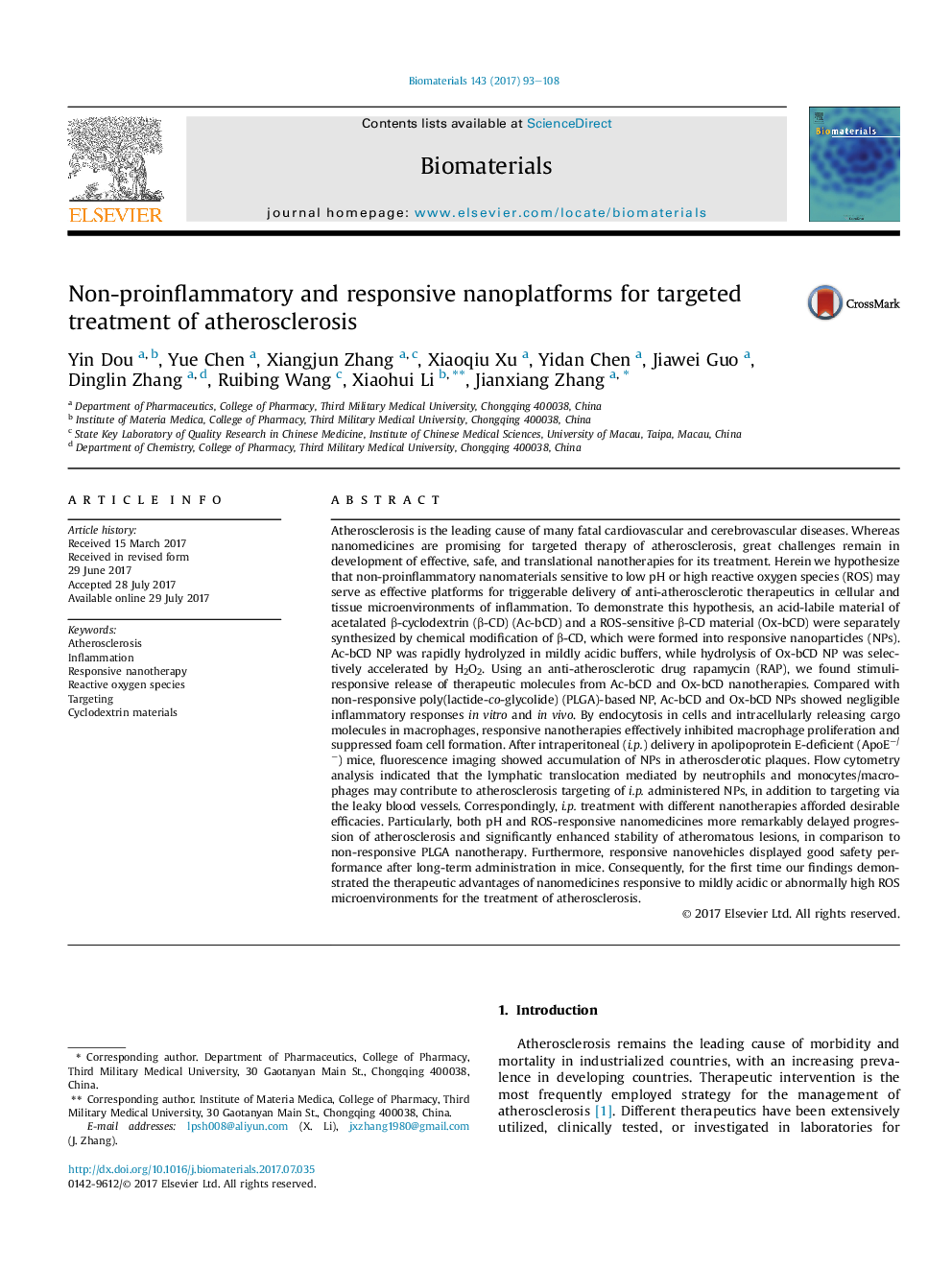| کد مقاله | کد نشریه | سال انتشار | مقاله انگلیسی | نسخه تمام متن |
|---|---|---|---|---|
| 4752317 | 1416124 | 2017 | 16 صفحه PDF | دانلود رایگان |
Atherosclerosis is the leading cause of many fatal cardiovascular and cerebrovascular diseases. Whereas nanomedicines are promising for targeted therapy of atherosclerosis, great challenges remain in development of effective, safe, and translational nanotherapies for its treatment. Herein we hypothesize that non-proinflammatory nanomaterials sensitive to low pH or high reactive oxygen species (ROS) may serve as effective platforms for triggerable delivery of anti-atherosclerotic therapeutics in cellular and tissue microenvironments of inflammation. To demonstrate this hypothesis, an acid-labile material of acetalated β-cyclodextrin (β-CD) (Ac-bCD) and a ROS-sensitive β-CD material (Ox-bCD) were separately synthesized by chemical modification of β-CD, which were formed into responsive nanoparticles (NPs). Ac-bCD NP was rapidly hydrolyzed in mildly acidic buffers, while hydrolysis of Ox-bCD NP was selectively accelerated by H2O2. Using an anti-atherosclerotic drug rapamycin (RAP), we found stimuli-responsive release of therapeutic molecules from Ac-bCD and Ox-bCD nanotherapies. Compared with non-responsive poly(lactide-co-glycolide) (PLGA)-based NP, Ac-bCD and Ox-bCD NPs showed negligible inflammatory responses in vitro and in vivo. By endocytosis in cells and intracellularly releasing cargo molecules in macrophages, responsive nanotherapies effectively inhibited macrophage proliferation and suppressed foam cell formation. After intraperitoneal (i.p.) delivery in apolipoprotein E-deficient (ApoEâ/â) mice, fluorescence imaging showed accumulation of NPs in atherosclerotic plaques. Flow cytometry analysis indicated that the lymphatic translocation mediated by neutrophils and monocytes/macrophages may contribute to atherosclerosis targeting of i.p. administered NPs, in addition to targeting via the leaky blood vessels. Correspondingly, i.p. treatment with different nanotherapies afforded desirable efficacies. Particularly, both pH and ROS-responsive nanomedicines more remarkably delayed progression of atherosclerosis and significantly enhanced stability of atheromatous lesions, in comparison to non-responsive PLGA nanotherapy. Furthermore, responsive nanovehicles displayed good safety performance after long-term administration in mice. Consequently, for the first time our findings demonstrated the therapeutic advantages of nanomedicines responsive to mildly acidic or abnormally high ROS microenvironments for the treatment of atherosclerosis.
382
Journal: Biomaterials - Volume 143, October 2017, Pages 93-108
